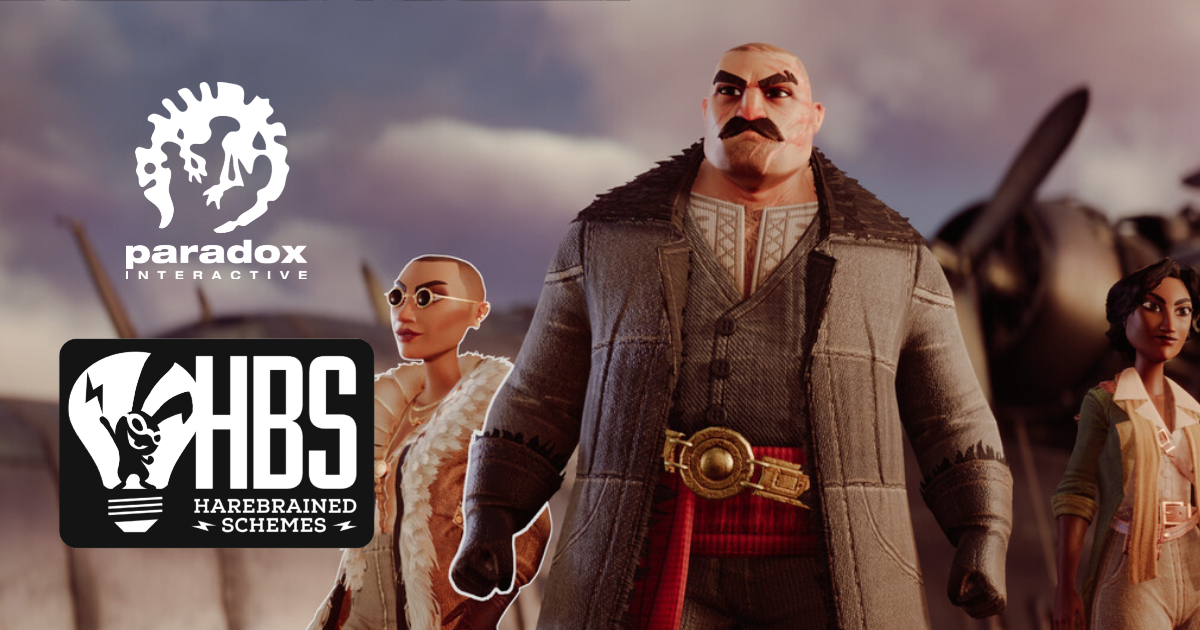Paradox Interactive and Harebrained Schemes, the studio behind Shadowrun and BattleTech, have decided to part ways. This comes just days after the new turn-based tactics The Lamplighters League proved to be a commercial flop.

What happened?
On October 17, Paradox Interactive announced that Harebrained Schemes will split from the company on January 1, 2024. The move is described as a “mutual agreement, stemming from each party’s strategic and creative priorities.”
The publisher will retain ownership of both The Lamplighters League and other games developed by HBS, while the studio will start operating as an independent company again.
According to Harebrained operations manager Brian Poel, the studio will continue to support The Lamplighters League through the end of the year while seeking funding and new partnerships for its independent future.
Paradox Interactive acquired Harebrained Schemes for $7.5 million in 2018. The studio, best known for the Shadowrun series and strategy game BattleTech, released The Lamplighters League, its first title since the acquisition, on October 3, 2023.
The PC version of the game received generally positive reviews from critics, with an average Metascore of 75/100, while the Xbox version was met with more mixed reviews (68/100). Shortly after launch, Paradox called the commercial reception for The Lamplighters League “too weak, which is frankly a big disappointment.”
The company then decided to recognize the project’s development costs of around $29.4 million as costs in the fourth quarter of 2023, also saying that its impact on profit before tax will be $22.8 million.
Harebrained Schemes also suffered from layoffs, as Paradox told PC Gamer that the studio was “significantly reduced over the summer as the game entered its last phase of development and launch preparations.”
Why doesn’t Paradox want games like The Lamplighters League in its portfolio?
As Paradox Interactive said in its latest announcement, The Lamplighters League just doesn’t fit into its portfolio plans. This is mostly due to its genre and the lack of long-term content support options.
“We and HBS’ leadership have been discussing what would happen after the release of The Lamplighters League, but a new project or sequel in the same genre was not in line with our portfolio plans,” Paradox COO Charlotta Nilsson said. “Hence, we believe that a separation would be the best way forward. We’re very happy that this talented, gifted studio has the chance to continue and can’t wait to see what they will make next.”
Harebrained Schemes wants to keep making tactical games, but Paradox “has refocused its strategy towards its core niches within strategy and management games with endless qualities.”
To better understand the publisher’s approach, let’s go back to its May 2023 meeting with investors. Paradox said that its business is built on three pillars:
- Focusing on core brands and adding player value to its existing titles through live game content like DLCs;
- Extending the core franchises and producing new IPs by studios with a successful track record;
- Finding promising games from third-party studios and partnering with smaller teams through its Paradox Arc publishing label.
It seems that Paradox gave HBS a chance with The Lamplighters League, but the game unfortunately failed commercially. In contrast, Age of Wonders 4, another title released by the publisher this year, became profitable just a few weeks after its launch.
It is also worth noting that the company wants to increase the number of the so-called “endless live titles” in its portfolio. There are currently five of them: Europa Universalis IV, Cities: Skylines, Hearts of Iron IV, Stellaris, and Crusader Kings III. All these games are strategies with endless live service potential, which is not something that can be said about The Lamplighters League.
During that meeting with investors, Paradox also said that it has killed nearly 50% of games before their launch since 2013. As a result of such an approach, 15 of the 28 titles released in the past 10 years were profitable. And it seems that Paradox will continue to bet big on projects with commercial and live service potential.
